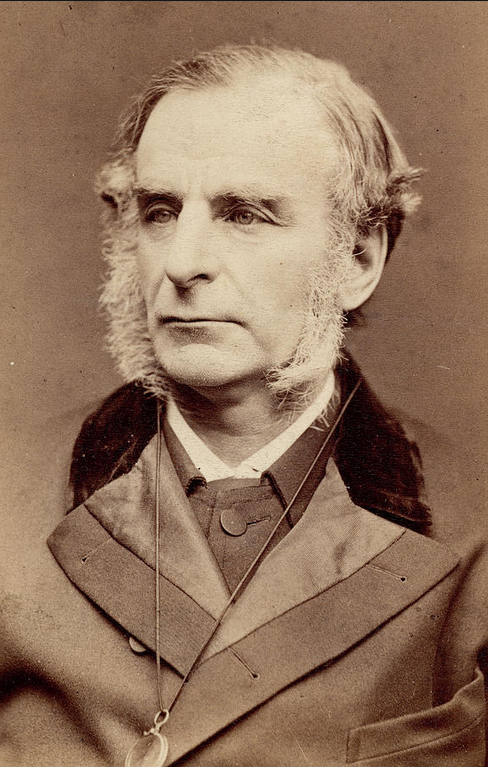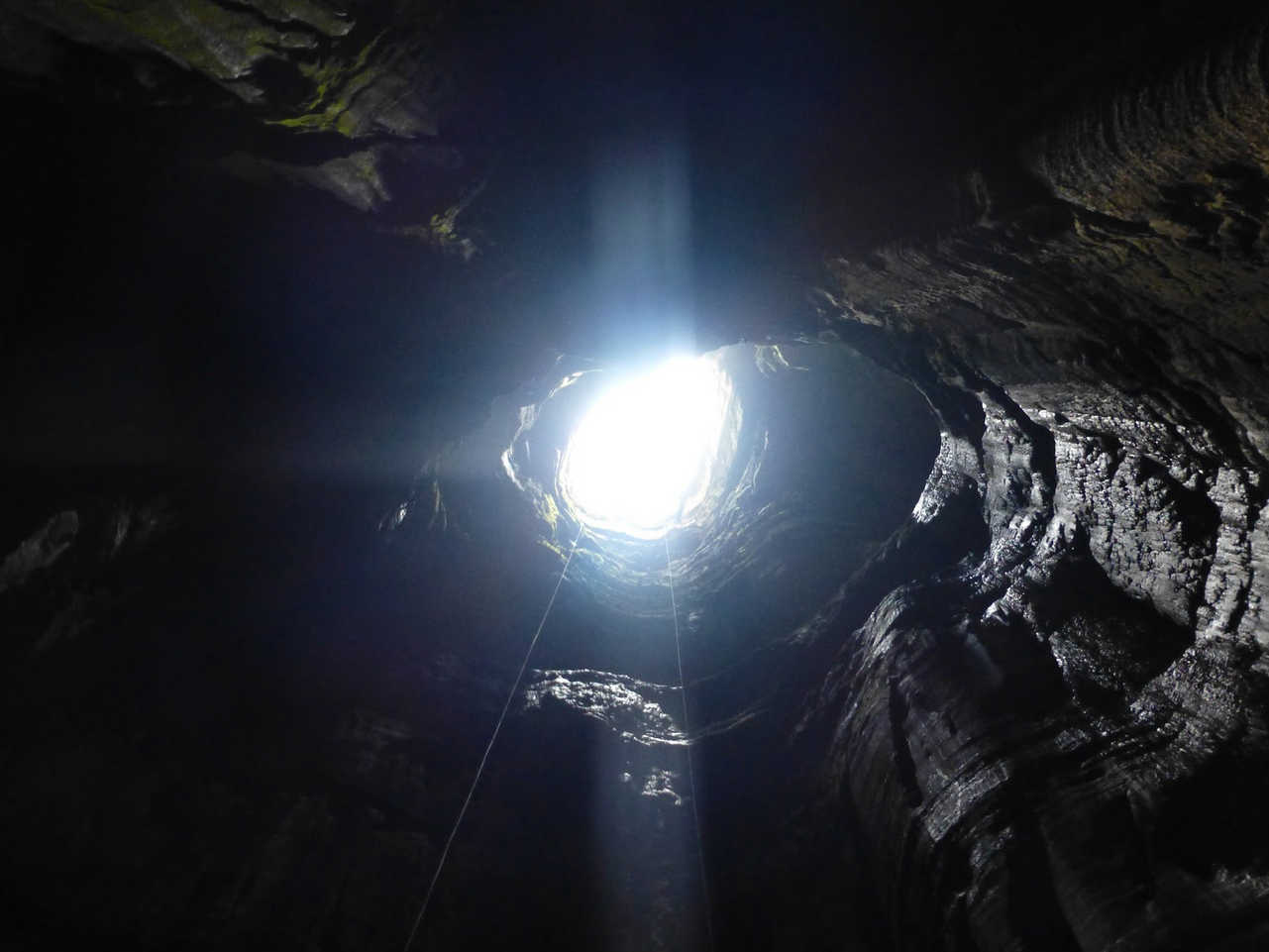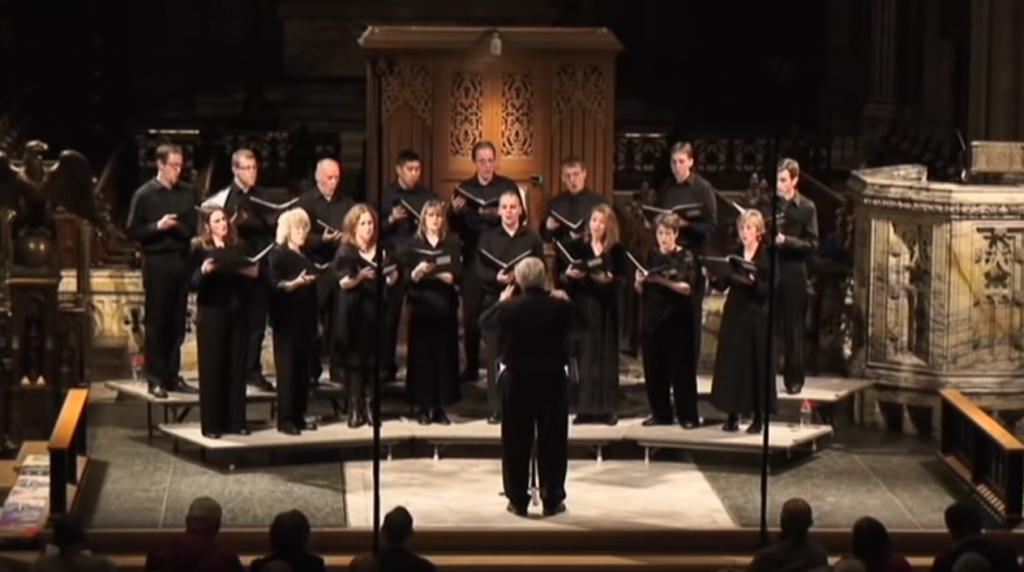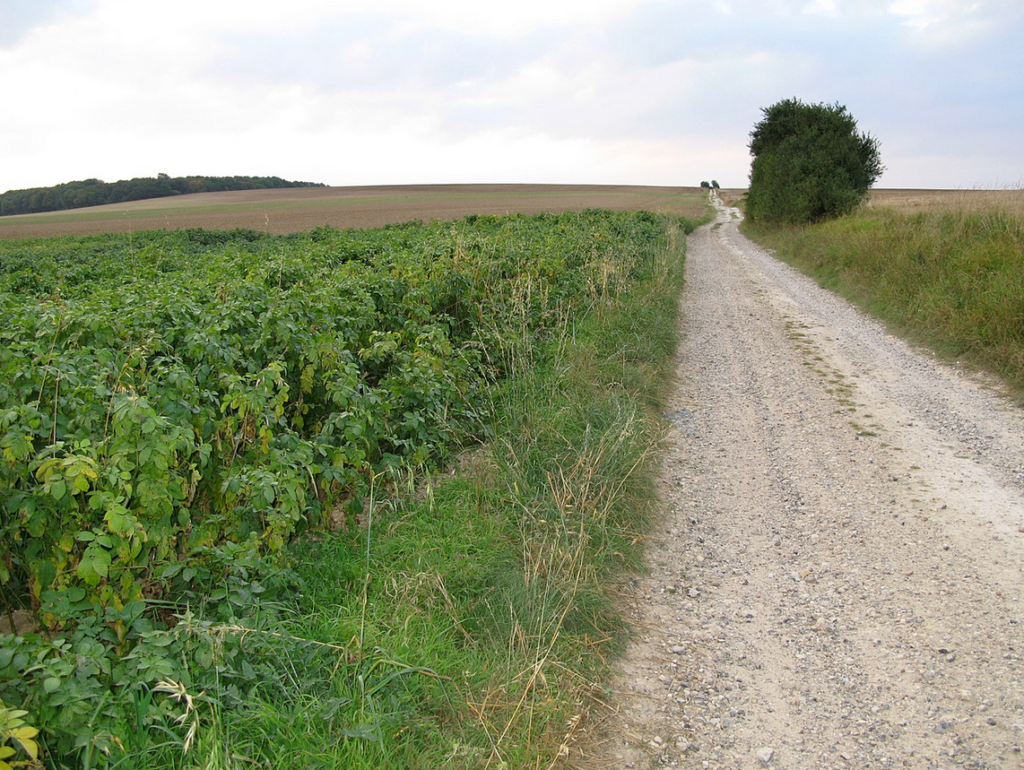Editor’s note: The following sermon is extracted from The Good News of God, by Charles Kingsley (published 1887).
Psalm cxxx. 1.
Out of the deep have I cried unto thee, O Lord. Lord, hear my voice.
What is this deep of which David speaks so often? He knew it well, for he had been in it often and long. He was just the sort of man to be in it often. A man with great good in him, and great evil; with very strong passions and feelings, dragging him down into the deep, and great light and understanding to show him the dark secrets of that horrible pit when he was in it; and with great love of God too, and of order, and justice, and of all good and beautiful things, to make him feel the horribleness of that pit where he ought not to be, all the more from its difference, its contrast, with the beautiful world of light, and order, and righteousness where he ought to be. Therefore he knew that deep well, and abhorred it, and he heaps together every ugly name, to try and express what no man can express, the horror of that place. It is a horrible pit, mire and clay, where he can find no footing, but sinks all the deeper for his struggling. It is a place of darkness and of storms, a shoreless and bottomless sea, where he is drowning, and drowning, while all God’s waves and billows go over him. It is a place of utter loneliness, where he sits like a sparrow on the housetop, or a doleful bird in the desert, while God has put his lovers and friends away from him, and hid his acquaintance out of his sight, and no man cares for his soul, and all men seem to him liars, and God himself seems to have forgotten him and forgotten all the world. It is a dreadful net which has entangled his feet, a dark prison in which he is set so fast that he cannot get forth. It is a torturing disgusting disease, which gives his flesh no health, and his bones no rest, and his wounds are putrid and corrupt. It is a battle-field after the fight, where he seems to lie stript among the dead, like those who are wounded and cut away from God’s hand, and lies groaning in the dust of death, seeing nothing round him but doleful shapes of destruction and misery, alone in the outer darkness, while a horrible dread overwhelms him. Yea, it is hell itself, the pit of hell, the nethermost hell, he says, where God’s wrath burns like fire, till his tongue cleaves to his gums, and his bones are burnt up like a firebrand, till he is weary of crying; his throat is dry, his heart fails him for waiting so long upon his God.
Yes. A dark and strange place is that same deep pit of God—if, indeed, it be God’s and God made it. Perhaps God did not make it. For God saw everything that he had made, and behold it was very good: and that pit cannot be very good; for all good things are orderly, and in shape; and in that pit is no shape, no order, nothing but contradiction and confusion. When a man is in that pit, it will seem to him as if he were alone in the world, and longing above all things for company; and yet he will hate to have any one to speak to him, and wrap himself up in himself to brood over his own misery. When he is in that pit he shall be so blind that he can see nothing, though his eyes be open in broad noon-day. When he is in that pit he will hate the thing which he loves most, and love the thing which he hates most. When he is in that pit he will long to die, and yet cling to life desperately, and be horribly afraid of dying. When he is in that pit it will seem to him that God is awfully, horribly near him, and he will try to hide from God, try to escape from under God’s hand: and yet all the while that God seems so dreadfully near him, God will seem further off from him than ever, millions and millions of miles away, parted from him by walls of iron, and a great gulf which he can never pass. There is nothing but contradiction in that pit: the man who is in it is of two minds about himself, and his kin and neighbours, and all heaven and earth; and knows not where to turn, or what to think, or even where he is at all.
For the food which he gets in that deep pit is very hunger of soul, and rage, and vain desires. And the ground which he stands on in that deep is a bottomless quagmire, and doubt, and change, and shapeless dread. And the air which he breathes in that deep is the very fire of God, which burns up everlastingly all the chalk and dross of the world.
I said that that deep was not merely the deep of affliction. No: for you may see men with every comfort which wealth and home can give, who are tormented day and night in that deep pit in the midst of all their prosperity, calling for a drop of water to cool their tongue, and finding none. And you may see poor creatures dying in agony on lonely sick beds, who are not in that pit at all, but in that better place whereof it is written, ‘Blessed are they who, going through the vale of misery, use it for a well, and the pools are filled with water;’ and again, ‘If any man thirst, let him come to me, and drink;’ and ‘the water that I shall give him shall be in him a well of water, springing up to everlasting life.’
No—that deep pit is a far worse place; an utterly bad place; and yet it may be good for a man to have fallen into it; and, strangely enough, if he do fall in, the lower he sinks in it, the better for him at last. That is another strange contradiction in that pit, which David found, that though it was a bottomless pit, the deeper he sank in it, the more likely he was to find his feet set on a rock; the further down in the nethermost hell he was, the nearer he was to being delivered from the nethermost hell.
Of course, if he had stayed in that pit, he must have died, body and soul. No mortal man, or immortal soul could endure it long. No immortal soul could; for he would lose all hope, all faith in God, all feeling of there being anything like justice and order in the world, all hope for himself, or for mankind, lying so in that living grave where no man can see God’s righteousness, or his faithfulness in that land where all things are forgotten.
And his mere mortal body could not stand it. The misery and terror and confusion of his soul would soon wear out his body, and he would die, as I have seen men actually die, when their souls have been left in that deep somewhat too long; shrink together into dark melancholy, and pine away, and die. And I have seen sweet young creatures too, whom God for some purpose of his own (which must be good and loving, for He did it) has let fall awhile into that deep of darkness; and then in compassion to their youth, and tenderness, and innocence, has lifted them gently out again, and set their weary feet upon the everlasting Rock, which is Christ; and has filled them with the light of his countenance, and joy and peace in believing; and has led them by green pastures and made them rest by the waters of comfort; and yet, though their souls were healed, their bodies were not. That fearful struggle has been too much for frail humanity, and they have drooped, and faded, and gone peacefully after a while home to their God, as a fair flower withers if the fire has but once past over it.
But some I have seen, men and women, who have arisen, like David, out of that strange deep, all the stronger for their fall; and have found out another strange contradiction about that deep, and the fire of God which burns below in it. For that fire hardens a man and softens him at the same time; and he comes out of it hardened to that hardness of which it is written, ‘Do thou endure hardness like a good soldier of Jesus Christ;’ and again, ‘I have fought a good fight, I have kept the faith, I have finished my course:’ yet softened to that softness of which it is written, ‘Be ye tenderhearted, compassionate, forgiving one another, even as God for Christ’s sake has forgiven you;’—and again, ‘We have a High Priest who can be touched with the feeling of our infirmities, seeing that he has been tempted in all things like as we are, yet without sin.’
Happy, thrice happy are they who have thus walked through the valley of the shadow of death, and found it the path which leads to everlasting life. Happy are they who have thus writhed awhile in the fierce fire of God, and have had burnt out of them the chaff and dross, and all which offends, and makes them vain, light, and yet makes them dull, drags them down at the same time; till only the pure gold of God’s righteousness is left, seven times tried in the fire, incorruptible, and precious in the sight of God and man. Such people need not regret—they will not regret—all that they have gone through. It has made them brave, made them sober, made them patient. It has given them
The reason firm, the temperate will,
Endurance, foresight, strength and skill;
and so has shaped them into the likeness of Christ, who was made perfect by suffering; and though he were a Son, yet in the days of his flesh, made strong supplication and crying with tears to his Father, and was heard in that he feared; and so, though he died on the cross and descended into hell, yet triumphed over death and hell, by dying and by descending; and conquered them by submitting to them. And yet they have been softened in that fierce furnace of God’s wrath, into another likeness of Christ—which after all is still the same; the character which he showed when he wept by the grave of Lazarus, and over the sinful city of Jerusalem; which he showed when his heart yearned over the perishing multitude, and over the leper, and the palsied man, and the maniac possessed with devils; the character which he showed when he said to the woman taken in adultery, ‘Neither do I condemn thee; go and sin no more;’ which he showed when he said to the sinful Magdalene, who washed his feet with tears, and wiped them with her hair, ‘her sins, which are many, are forgiven; for she loved much;’ the likeness which he showed in his very death agony upon the torturing cross, when he prayed for his murderers, ‘Father, forgive them, for they know not what they do.’ This is the character which man may get in that dark deep.—To feel for all, and feel with all; to rejoice with those who rejoice, and weep with those who weep; to understand people’s trials, and make allowances for their temptations; to put oneself in their place, till we see with their eyes, and feel with their hearts, till we judge no man, and have hope for all; to be fair, and patient, and tender with every one we meet; to despise no one, despair of no one, because Christ despises none, and despairs of none; to look upon every one we meet with love, almost with pity, as people who either have been down into the deep of horror, or may go down into it any day; to see our own sins in other people’s sins, and know that we might do what they do, and feel as they feel, any moment, did God desert us; to give and forgive, to live and let live, even as Christ gives to us, and forgives us, and lives for us, and lets us live, in spite of all our sins.
And how shall we learn this? How shall the bottomless pit, if we fall into it, be but a pathway to the everlasting rock?
David tells us:
‘Out of the deep have I cried unto thee, O Lord.’
He cried to God.
Not to himself, his own learning, talents, wealth, prudence, to pull him out of that pit. Not to princes, nobles, and great men. Not to doctrines, books, church-goings. Not to the dearest friend he had on earth; for they had forsaken him, could not understand him, thought him perhaps beside himself. Not to his own good works, almsgivings, church-goings, church-buildings. Not to his own experiences, faith’s assurances, frames or feelings. The matter was too terrible to be plastered over in that way, or in any way. He was face to face with God alone, in utter weakness, in utter nakedness of soul, He cried to God himself. There was the lesson.
God took away from him all things, that he might have no one to cry to but God.
God took him up, and cast him down: and there he sat all alone, astonished and confounded, like Rizpah, the daughter of Aiah, when she sat alone upon the parching rock. Like Rizpah, he watched the dead corpses of all his hopes and plans, all for which he had lived, and which made life worth having, withering away there by his side. But it was told David what Rizpah, the daughter of Aiah, had done. And it is told to one greater than David, even to Jesus Christ, the Son of David, what the poor soul does when it sits alone in its despair. Or rather it need not be told him; for he sees all, weeps over all, will comfort all: and it shall be to that poor soul as it was to poor deserted Hagar in the sandy desert, when the water was spent in the bottle, and she cast her child—the only thing she had left—under one of the shrubs and hurried away; for she said, ‘Let me not see the child die.’ And the angel of the Lord called to her out of heaven, saying, ‘The Lord hath heard the voice of the lad where he is;’ and God opened her eyes, and she saw a well of water.
It shall be with that poor soul as it was with Moses, when he went up alone into the mount of God, and fasted forty days and forty nights amid the earthquake and the thunderstorm, and the rocks which melted before the Lord. And behold, when it was past, he talked face to face with God, as a man talketh with his friend, and his countenance shone with heavenly light, when he came down triumphant out of the mount of God.
So shall it be with every soul of man who, being in the deep, cries out of that deep to God, whether in bloody India or in peaceful England. For He with whom we have to do is not a tyrant, but a Father; not a taskmaster, but a Giver and a Redeemer. We may ask him freely, as David does, to consider our complaint, because he will consider it well, and understand it, and do it justice. He is not extreme to mark what is done amiss, and therefore we can abide his judgments. There is mercy with him, and therefore it is worth while to fear him. He waits for us year after year, with patience which cannot tire; therefore it is but fair that we should wait a while for him. With him is plenteous redemption, and therefore redemption enough for us, and for those likewise whom we love. He will redeem us from all our sins: and what do we need more? He will make us perfect, even as our Father in heaven is perfect. Let him then, if he must, make us perfect by sufferings. By sufferings Christ was made perfect; and what was the best path for Jesus Christ is surely good enough for us, even though it be a rough and a thorny one. Let us lie still beneath God’s hand; for though his hand be heavy upon us, it is strong and safe beneath us too; and none can pluck us out of his hand, for in him we live and move and have our being; and though we go down into hell with David, with David we shall find God there, and find, with David, that he will not leave our souls in hell, or suffer his holy ones to see corruption. Yes; have faith in God. Nothing in thee which he has made shall see corruption; for it is a thought of God’s, and no thought of his can perish. Nothing shall be purged out of thee but thy disease; nothing shall be burnt out of thee but thy dross; and that in thee shall be saved, and live to all eternity, of which God said at the beginning, Let us make man in our own image. Yes. Have faith in God; and say to him once for all, ‘Though thou slay me, yet will I love thee; for thou lovedst me in Jesus Christ before the foundation of the world.’










